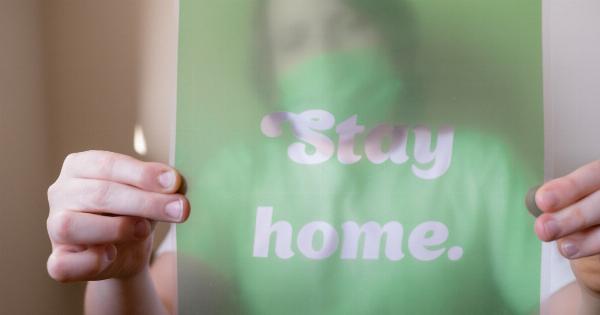The daily calorie requirement is an essential factor in maintaining a healthy lifestyle. It helps individuals understand how much energy their bodies need to function properly throughout the day.
However, recent studies have shown that men tend to lag behind in their knowledge of daily calorie requirements compared to women. This lack of awareness may have significant implications for men’s overall health and well-being.
The importance of knowing daily calorie requirements
Understanding daily calorie requirements is crucial for maintaining a healthy weight and preventing various health conditions. The number of calories needed varies depending on a person’s age, sex, weight, height, and activity level.
By knowing their daily calorie requirements, individuals can make informed decisions about their diet and physical activity.
Why men struggle with knowledge of daily calorie requirements
Several factors contribute to men lagging behind in their knowledge of daily calorie requirements compared to women. One potential reason is the societal expectations surrounding masculinity and body image.
Men are often encouraged to build muscle and maintain a strong physique, which may lead to a focus on protein intake rather than overall calorie count.
Additionally, the diet and fitness industries tend to target women more aggressively, with advertisements and products specifically marketed toward them.
This focus on women may inadvertently create a knowledge gap, leaving men with limited resources to learn about their own daily calorie requirements.
Another factor that may contribute to men’s lack of knowledge is the perception that calorie counting is a feminine or restrictive practice.
Some men may associate counting calories with dieting and weight loss, which can be stigmatized in society. As a result, they may be less likely to engage in activities or seek information related to calorie counting.
The potential consequences for men’s health
The lack of knowledge regarding daily calorie requirements can have significant consequences for men’s health. Without knowing the appropriate number of calories their bodies require, men may inadvertently consume too few or too many calories.
Both scenarios can lead to negative outcomes.
Consuming too few calories can result in nutritional deficiencies, muscle loss, decreased energy levels, and impaired cognitive function.
On the other hand, consuming too many calories can lead to weight gain, obesity, and an increased risk of developing chronic conditions such as cardiovascular disease and diabetes.
The need for education and awareness
To bridge the knowledge gap, it is essential to provide men with education and resources regarding daily calorie requirements.
This can be achieved through various means, including targeted marketing campaigns, educational programs, and better inclusion of men in discussions about nutrition and health.
Healthcare providers also play a crucial role in raising awareness among men about daily calorie requirements.
During routine check-ups or consultations, healthcare professionals can take the opportunity to educate men about the importance of understanding and meeting their dietary needs.
Breaking the stereotypes
The societal stereotypes and stigmas surrounding calorie counting and dieting need to be addressed to encourage more men to prioritize their health and become knowledgeable about their daily calorie requirements.
By destigmatizing these practices, men can feel more comfortable and empowered to take charge of their nutrition and overall well-being.
Practical tips for men to understand their daily calorie requirements
Here are some practical tips for men to better grasp their daily calorie requirements:.
- Educate yourself: Take the time to learn about the factors that affect daily calorie requirements, such as age, weight, height, and activity level.
- Use online tools and calculators: Utilize online resources and calorie calculators to estimate your daily calorie needs based on individual characteristics.
- Consult a healthcare professional: Seek guidance from a registered dietitian or nutritionist who can help you determine your specific daily calorie requirements.
- Track your food intake: Use a food diary or smartphone app to track the calories you consume daily. This can help you become more mindful of your eating habits.
- Listen to your body: Pay attention to hunger and satiety cues. Learning to eat intuitively can help you maintain a balance between meeting your calorie needs and avoiding overeating.
- Make small changes: Gradually incorporate healthier food choices into your diet and reduce portion sizes if necessary. Small changes can have a big impact over time.
- Stay active: Regular physical activity not only aids in weight management but also contributes to overall health. Find activities you enjoy and make them part of your daily routine.
- Keep learning: Stay informed about nutrition and health-related topics through reputable sources. This will help you adapt to any changes in your daily calorie requirements as you age.
- Support each other: Encourage other men in your social circles to prioritize their health and educate themselves about daily calorie requirements.
Conclusion
Men’s knowledge of daily calorie requirements lags behind that of women, potentially due to societal expectations, limited marketing efforts, and stereotypes surrounding calorie counting.
This lack of awareness can have adverse effects on men’s overall health and well-being. It is crucial to provide education, resources, and support to help men better understand and meet their daily calorie requirements.
By breaking the stereotypes and stigmas surrounding calorie counting, men can take charge of their nutrition and improve their overall health.































